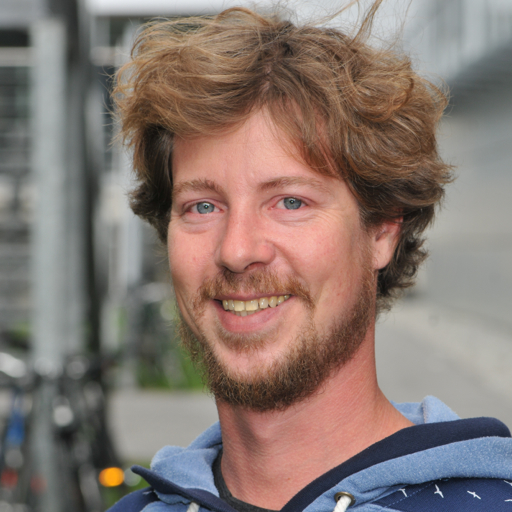Research Interests
- Steganography and steganalysis
- Adversarial machine learning
- Public-key cryptography
- Anomaly detection in networks
Positions
| since 10/2018 | Junior Professor, Management Center Innsbruck, Austria |
| 2015 – 2018 | Postdoctoral Fellow, Security and Privacy Lab, Department of Computer Science, University of Innsbruck, Austria |
| 2014 – 2015 | Postdoctoral Fellow, IT Security Research Group (Prof. Dr.-Ing. Rainer Böhme), Department of Information Systems, University of Münster, Germany |
| 2013 | Visiting Scientist, College of Information Sciences and Technologies, Pennsylvania State University, Pennsylvania |
| 2011 – 2014 | Research Assistant, IT Security Research Group (Prof. Dr.-Ing. Rainer Böhme), Department of Information Systems, University of Münster, Germany |
Education
| 07/2014 | Ph.D. (Dr. rer. nat.) in Computer Science, University of Münster, Germany |
| 2008 – 2011 | M.Sc. in IT Security at Ruhr-University Bochum, Germany |
| 2003 – 2008 | B.Sc. in Mathematical Engineering at University Duisburg-Essen, Germany |
Publications
Adversarial Machine Learning
- Schöttle, P., Schlögl, A., Pasquini, C., and Böhme, R. Detecting Adversarial Examples – A Lesson from Multimedia Security. In Proceedings of the 26th European Signal Processing Conference (EUSIPCO). EURASIP, Rome, Italy, 2018. [PDF]
Steganography, Steganalysis, Digital Forensics
- Pasquini, C., Schöttle, P., and Böhme, R. Decoy Password Vaults: At Least As Hard As Steganography? In S.D.C. di Vimercati and F. Martinelli, eds., ICT Systems Security and Privacy Protection (IFIP SEC). IFIP Advances in Information and Communication Technology 502, Springer, 2017, pp. 327–340. [PDF]
- Pasquini, C., Schöttle, P., Böhme, R., Boato, G., and Pèrez-Gonzàlez, F. Forensics of High Quality and Nearly Identical JPEG Image Recompression. In ACM Information Hiding and Multimedia Security Workshop. Vigo, Galicia, Spain, 2016, pp. 11–21. [Publisher]
- Schöttle, P. and Böhme, R. Game Theory and Adaptive Steganography. IEEE Transactions on Information Forensics and Security, 11, 4 (2016), 760–773. [PDF] [Publisher]
- Carnein, M., Schöttle, P., and Böhme, R. Telltale Watermarks for Counting JPEG Compressions. In Proceedings of IS&T Electronic Imaging: Media Watermarking, Security, and Forensics 2016. San Francisco, CA, 2016. [PDF]
- Carnein, M., Schöttle, P., and Böhme, R. Forensics of High-Quality JPEG Images with Color Subsampling. In IEEE International Workshop on Information Forensics and Security (WIFS). Rome, Italy, 2015. [PDF]
- Johnson, B., Schöttle, P., Laszka, A., Grossklags, J., and Böhme, R. Adaptive Steganography and Steganalysis with Fixed-Size Embedding. Transactions on Data Hiding and Multimedia Security, 10, (2015), 69–91. [Publisher]
- Kirchner, M., Schöttle, P., and Riess, C. Thinking Beyond the Block: Block Matching for Copy-Move Forgery Detection Revisited. Proc. SPIE 9409, 2015, 940903–940903-12.
- Carnein, M., Schöttle, P., and Böhme, R. Predictable Rain? Steganalysis of Public-Key Steganography using Wet Paper Codes. In ACM Information Hiding and Multimedia Security Workshop. Salzburg, Austria, 2014, pp. 97–108. [Publisher]
- Quiring, E. and Schöttle, P. On the Combination of Randomized Thresholds and Non-Parametric Boundaries to Protect Digital Watermarks against Sensitivity Attacks. In ACM Information Hiding and Multimedia Security Workshop. Salzburg, Austria, 2014, pp. 41–48.
- Johnson, B., Schöttle, P., Laszka, A., Grossklags, J., and Böhme, R. Bitspotting: Detecting Optimal Adaptive Steganography. In Y.-Q. Shi, H.-J. Kim and F. Pérez-González, eds., Digital Forensics and Watermarking, 12th International Workshop, IWDW 2013. Lecture Notes in Computer Science 8389, Springer, Berlin Heidelberg, 2014, pp. 3–18.
- Schöttle, P., Laszka, A., Johnson, B., Grossklags, J., and Böhme, R. A Game-Theoretic Analysis of Content-adaptive Steganography with Independent Embedding. In 21st European Signal Processing Conference (EUSIPCO). IEEE, Marrakech, Morocco, 2013, pp. 1–5.
- Schöttle, P., Korff, S., and Böhme, R. Weighted Stego-Image Steganalysis for Naive Content-Adaptive Embedding. In IEEE International Workshop on Information Forensics and Security (WIFS). IEEE, Tenerife, Spain, 2012, pp. 193–198.
- Schöttle, P. and Böhme, R. A Game-Theoretic Approach to Content-Adaptive Steganography. In M. Kirchner and D. Ghosal, eds., Information Hiding (14th International Conference). Lecture Notes in Computer Science 7692, Springer, Berlin Heidelberg, 2012, pp. 125–141.
- Johnson, B., Schöttle, P., and Böhme, R. Where to Hide the Bits? In J. Grossklags and J. Walrand, eds., Decision and Game Theory for Security. Lecture Notes in Computer Science 7638, Springer, Berlin Heidelberg, 2012, pp. 1–17.
Miscellaneous
- Abramova, S., Schöttle, P., and Böhme, R. Mixing Coins of Different Quality: A Game-Theoretic Approach. In M. Brenner at al., ed., 4th Workshop on Bitcoin and Blockchain Research, in assocation with Financial Cryptography and Data Security. Lecture Notes in Computer Science 10323, Springer, Cham, 2017, pp. 280–297. [PDF]
- Laszka, A., Johnson, B., Schöttle, P., Grossklags, J., and Böhme, R. Secure Team Composition to Thwart Insider Threats and Cyberespionage. ACM Transactions on Internet Technology, 14, 2–3 (2014), 19:1–22. [Publisher]
- Laszka, A., Johnson, B., Schöttle, P., and Böhme, R. Managing the Weakest Link: A Game-Theoretic Approach for the Mitigation of Insider Threats. In J. Crampton, S. Jajodia and K. Mayes, eds., Computer Security (ESORICS). Lecture Notes in Computer Science 8134, Springer, Berlin Heidelberg, 2013, pp. 273–290.
- Schöttle, P., Dreibholz, T., and Rathgeb, E.P. On the Application of Anomaly Detection in Reliable Server Pooling Systems for Improved Robustness against Denial of Service attacks. In Proceedings of the 33rd IEEE Conference on Local Computer Networks, LCN 2008. null, Universität Duisburg-Essen, Montreal, AB, can, 2008, pp. 207–214.
In German
- Schöttle, P. and Böhme, R. Die totale Transparenz. Facebook, Cookies, RFID etc. In M. Dabrowski, J. Wolf and K. Abmeier, eds., Ethische Herausforderungen im Web 2.0. Schöningh, Paderborn, 2014, pp. 11–31.


